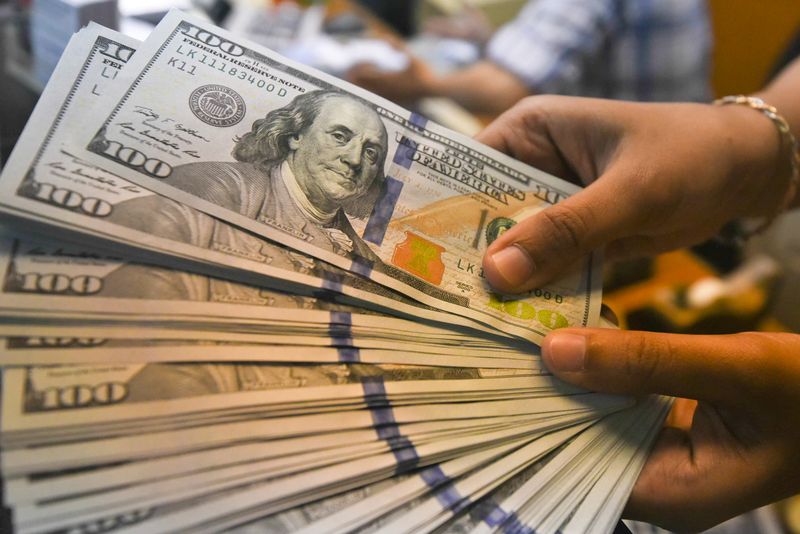By Tom Westbrook
SINGAPORE (Reuters) - The dollar inched lower on Tuesday as growing optimism about a global recovery from the COVID-19 pandemic supported riskier currencies, but moves lacked the exuberance of the equities market as Sino-U.S. tensions kept the mood in check.
The trade-sensitive Australian and New Zealand dollars each rose about half a percent, but remain below last week's highs. The Chinese yuan, a barometer of U.S.-China relations, was also mostly left behind by a rally in other Asian currencies.
"Markets are caught between two conflicting currents," said Michael McCarthy, CMC Markets' chief strategist. "Rising tensions between China and the U.S. are raising concerns, while easing COVID-19 lockdown measures are fuelling growth optimism."
Against a basket of currencies (=USD) the dollar was marginally softer at 99.618. It inched higher on the Japanese yen
The Australian dollar
The yuan
Trade, the handling of the pandemic and China's move to impose laws on Hong Kong are all seen as potential catalysts for a further deterioration in already testy U.S.-China relations.
The latest salvos came over the weekend, with White House National Security Adviser Robert O'Brien warning of potential sanctions if Hong Kong's autonomy was undermined, and China's top diplomat Wang Yi criticising U.S. attacks as a "smear".
"With elections looming, U.S. politicians are compelled to ratchet up the tension in the coming months," Singapore's DBS Bank economists said in a note on Tuesday.
"A ruinous cold war that hurts global trade, supply chains, efficiency of common standards and geopolitical stability is increasingly on the cards, in our view."
Meanwhile, the economic fallout from the pandemic, and the global policy response, keeps growing and investors are becoming increasingly nervous that a pullback may be due.
China's central bank Governor Yi Gang flagged further easing in an interview published by the People's Bank of China on Tuesday.
A third downgrade in Singapore's growth forecast also provided a fresh reminder of the pandemic's devastating impact on the global economy.
The outlook prompted Australia's ANZ and Singapore's OCBC Bank both to talk down the prospect of much further upside in the Antipodean currencies.
"At current levels a global recovery is in the price, and we believe it's a question of when, not if, depreciation resumes," ANZ analysts said in a note, while OCBC's strategist Terence Wu similarly expects the greenback to gain back some ground.
Still, from Europe to Japan, restrictions on businesses and movement are lifting and there is plenty of hope for a swift return to growth. The British pound
And the relative calm has the braver traders looking for carry -- and with reason: the beaten-down Mexican peso and Brazilian real each added between 4% and 5% on both sterling and the common currency last week. (GBPMXN=R) (EURMXN=R)
"We've got the perfect ground right now for Mexican peso or Brazilian real outperformance," said Chris Weston, head of research at Melbourne brokerage Pepperstone. "It's basically choose your carry vehicle, or funding currency, and get paid."
Which stock should you buy in your very next trade?
With valuations skyrocketing in 2024, many investors are uneasy putting more money into stocks. Unsure where to invest next? Get access to our proven portfolios and discover high-potential opportunities.
In 2024 alone, ProPicks AI identified 2 stocks that surged over 150%, 4 additional stocks that leaped over 30%, and 3 more that climbed over 25%. That's an impressive track record.
With portfolios tailored for Dow stocks, S&P stocks, Tech stocks, and Mid Cap stocks, you can explore various wealth-building strategies.


